
Time for another THR Superstar!
This series of interviews is to celebrate people working hard to promote THR (Tobacco Harm Reduction) and stand up for those of us who want and need safer nicotine products.
This week it is Dr Marewa Glover who is a wonderful advocate for THR and indigenous people in New Zealand and Worldwide.
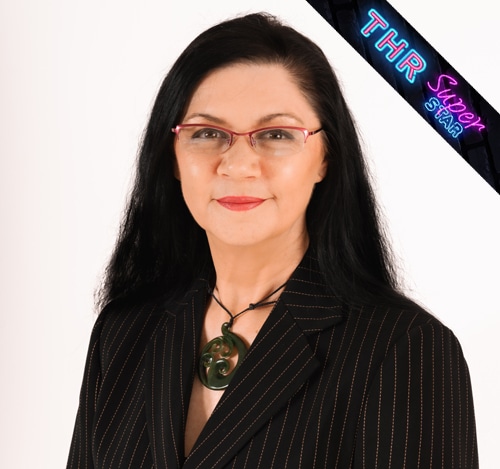
She even won awards for her work, including reaching the final of the “New Zealander of the Year Supreme award” in 2019.
Of course if you are on X / Twitter you will see her hard work for yourself. She regularly posts related studies plus her appearances at conferences and in the media.
Great 1st day of @SCOHREOrg #NoSmokeSummit23 tomorrow I will be part of a panel with David Sweanor
@FarsalinosK
@NannyFreeState
& Fernando Bueno
#harmreduction Join online pic.twitter.com/SSZy65o6HC
— Prof Marewa Glover (@MarewaGlover) September 25, 2023
In 2018 she established the Centre of Research Excellence: Indigenous Sovereignty & Smoking.
Have had a busy first yr getting my Centre of Research set up; 2 jnl articles submitted in this last week & successful launch of a report on Suki & Tobacco Use Among the iTaukei People of Fiji yesterday. Village reps in attendance pledged to make homes smokefree #startup pic.twitter.com/1QmKMXdv3S
— Prof Marewa Glover (@MarewaGlover) June 29, 2019
Tell me a little about your life and career so far…
I grew up in Auckland, New Zealand (NZ).
My grandfather (28th Māori Battalion). I never met him but grew up knowing his brothers: Uncle Ted had war injuries, Uncle Len, Uncle Sid, his sister Auntie Pauline. #ANZAC #LestWeForget pic.twitter.com/ZlAvDxllQV
— Prof Marewa Glover (@MarewaGlover) April 24, 2022
My first ‘job’ at 13-years-old involved getting up at 4am to help Dad deliver milk. By 15, I was living with my Mum, her husband, and my two younger sisters in an outback city in Australia. Luckily, I went to boarding school during the week. On the weekends, I did Waitressing in our hotel dining room, sometimes housekeeping cleaning rooms and occasionally I had to mop the public bar floor and gross toilets at 2am. I began my first real full time job at 16.
After several years of some horrid experiences with some screwed up people, I thought I could help by becoming a Psychologist. So, I began a Bachelor of Arts. That got me started in community health.
Seeing #FearlessGirl in Melbourne today quite triggering, as reminded me of my child self standing up to my abusive father, step-father & all the men & mostly male colleagues who have tried to destroy me; & they’re still firing off their defamatory emails & op eds #bullying pic.twitter.com/4ZOJoV8o6i
— Prof Marewa Glover (@MarewaGlover) March 5, 2019
I then did a Master of Social Science majoring in Psychology and simultaneously a Diploma in Community Psychology.
This led to working as a Policy Analyst in public health, which is when I committed my career to reducing smoking-related morbidity and mortality. To be taken seriously however, I realised I needed a Ph.D. So, I went back to university.
In 2001, I graduated as a Behavioural Scientist – the first person in NZ to do a Doctorate on smoking cessation. Thus far, I have worked on helping people to stop smoking for 24 years.
Have you smoked? If so, how long did you smoke for?
I smoked rarely with school friends from age 13. From 16, once working full time, I smoked daily.
I developed chronic Bronchitis after only 5-6 years and was probably told by a Doctor to quit. After a bit of stop start, I managed to stop permanently.
Do you vape? If so, when did you start?
I tried vaping, without nicotine, just to understand it better.
How did vaping / THR change your life?
Vaping has changed my life, not because I vape but because I became an advocate for vaping to reduce smoking-related diseases and associated deaths more rapidly.
For 10 years previous I was involved with End Smoking NZ and we had been lobbying for Swedish snus to be adopted as a harm reduction option in NZ. We didn’t get snus. So, when vaping came along, we investigated that and became the first group in NZ to start lobbying for vaping.
I could not have predicted how vicious and underhanded the NZ and Australian tobacco control prohibitionists would be towards me. What they began was textbook mobbing. Their goal was to get rid of me and make sure I would never work on smoking ever again.
Jean-Francois Etter @etterjf talk on @SmokeFreeFdn #ecigsummit incl detail on harassment & exclusion of grantees incl me; many of his challenges for FSFW difficult to address if ppl who assoc are bullied not to collaborate/advise. He called for stronger condemnation of #bullying pic.twitter.com/mTbqfr9Q6q
— Prof Marewa Glover (@MarewaGlover) November 14, 2019
However, there are some truly good and honourable people in the world.
Horrified by what he saw, a Dean at another university employed me as an Associate Professor in Public Health. I was later promoted to Professor. I could no longer get research funding to do anything on smoking due to the peer-influenced funding process in NZ. So, I was effectively out of tobacco control, except for my voluntary role as Chairperson of End Smoking NZ.
My life changed again when I was granted funding from the Foundation for a Smoke-Free World to start my own Centre of Research Excellence: Indigenous Sovereignty & Smoking. The tobacco control folk, who believed they had eliminated me, flew into a rage. Locally, they fired up the media to do “Hit Pieces” on me, they wrote screeds of (un)scientific Ad Hominem attack papers, they demanded that the Ministry of Health and other health groups blacklisted me, and most did.
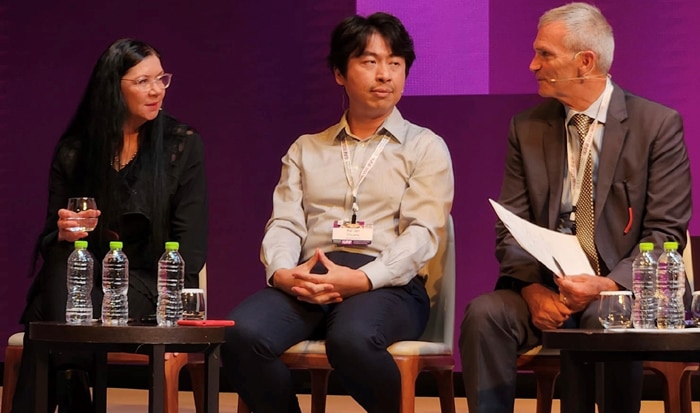
What current projects / campaigns are you working on?
With my Centre established, I began an ambitious programme of research looking at smoking prevalence among Indigenous peoples worldwide.
I trialled, or funded, some cessation interventions for Māori pregnant women who smoke.
Innovative #Indigenous trial to help pregnant Māori women to stop smoking combines traditional knowledge & practices + digital tools, incl app using #AugmentedReality Run during lockdown. Very different approach; gr8 potential. High use of #vaping Tumeke! https://t.co/Bj0Nbe03nb pic.twitter.com/xfcDRS8L0S
— Prof Marewa Glover (@MarewaGlover) June 1, 2021
I began a longitudinal qualitative study to identify the facilitators and barriers to stopping smoking or switching to vaping among adults who didn’t want to quit. Their stories can be followed at www.voicesofthe5percent.nz. We analysed the rise in robberies of tobacco from retailers, and much more.
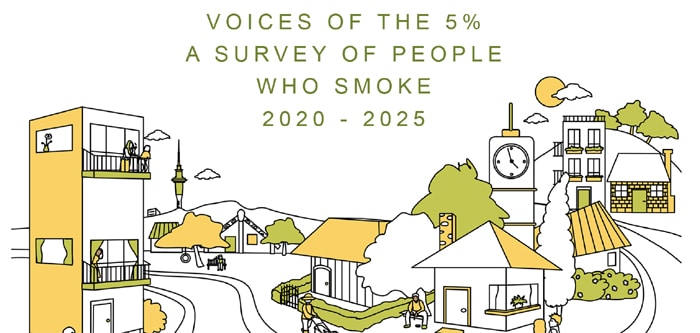
What do you feel needs to change regarding tobacco harm reduction worldwide?
Regulators (mostly) rely on science to justify law changes. They are being misled about tobacco harm reduction. This manipulation is enacted primarily by academics who are anti-THR. Some are ideologically driven, some are naïve to the topic. Some are just not very good researchers and some are opportunists chasing funding and status.
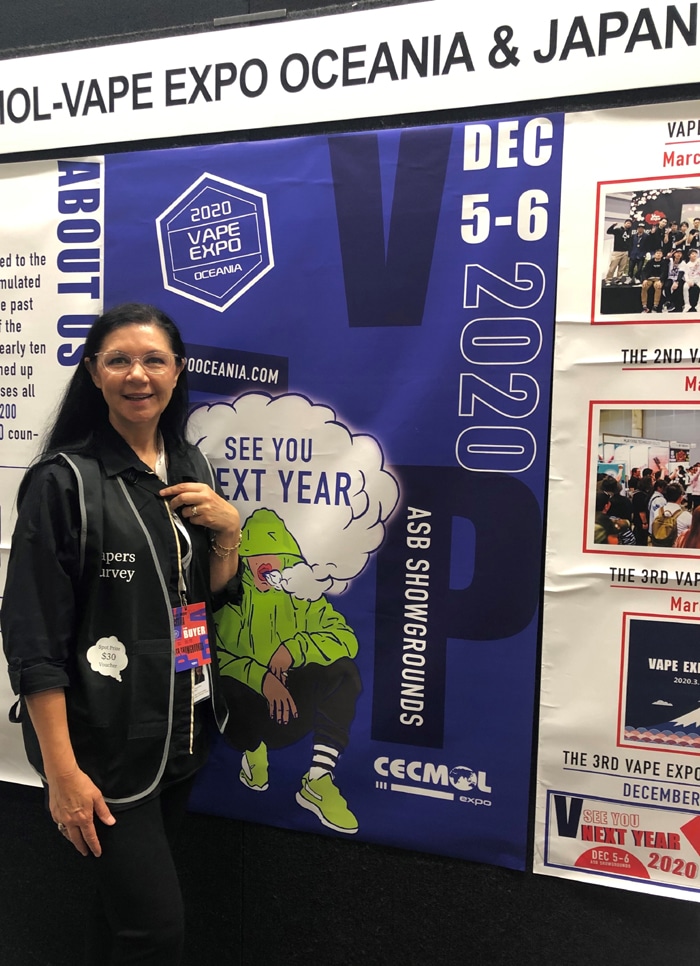
To change this, academia worldwide needs to implement processes aimed at monitoring and stopping unprofessional and unethical behaviour. Applications for research funding and proposed unfunded studies and papers should be assessed internally before being released into the world. Assessment should look for bias, including ideological bias, honesty, and to ensure the rationale is well-founded in robust science. The assessment needs to be done by independent scientific experts.
This should stop Ad Hominem attacks, scientifically flawed and weak work, and shabby writing.
I’m no cartoonist so pls excuse my scribble but this FB memory today from 2016 was somewhat prophetic re #vaping @FDATobacco Big Tobacco Control & the hidden long arm of Big Pharma. pic.twitter.com/Pb0GjhEBhZ
— Prof Marewa Glover (@MarewaGlover) October 5, 2021
Any countries you feel are succeeding in THR?
Sweden is the leading exemplar. Japan, Iceland, South Korea, NZ, the UK and even the USA. Late-comers to watch are the Philippines.
Proud to be a co-author on Savings Lives Like Sweden
report launching now & available at @SmokeFreeSweden The report estimates lives that could be saved in other countries if they adopted Sweden’s #HarmReduction approach to reducing smoking pic.twitter.com/J0VeNWGiT8
— Prof Marewa Glover (@MarewaGlover) June 21, 2023
What additional problems do indigenous people face when it comes to harm reduction? Is there a lot of health inequality?
About 476 million people living across 90 countries are Indigenous. Their circumstances vary widely. There is very little data on smoking prevalence for most of them. Where data exists, mostly Indigenous peoples have disproportionately higher smoking rates.
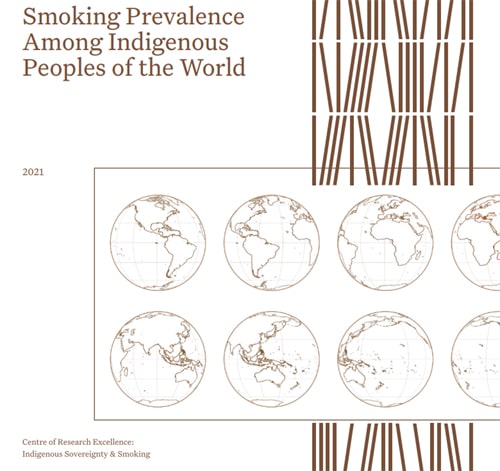
In the USA and Australia, like regulators, many Indigenous tribal groups are being misled about the vastly lower risk of tobacco harm reduction products compared with continuing to smoke.
In Australia for example, tobacco control is controlled by non-Indigenous anti-THR academics and government officials. It is they who are blocking Aboriginal and Torres Strait Islander people from having access to risk-reduced alternatives to smoking. They control the funding of Aboriginal and Torres Strait Island health services.
Sweden allows their citizens access to low risk alternatives to smoking: #snus #vaping, oral nicotine pouches. Smoking down to 5%, lowest rates of smoking-related diseases & deaths in Europe. Indigenous Saami have used #snus for 100+yrs. #evidence #truth #saveslives pic.twitter.com/GIXjDltC0K
— Prof Marewa Glover (@MarewaGlover) July 1, 2023
If an Aboriginal service embraces vaping, their funding will be cut. If an Aboriginal person dared to advocate for THR, they will receive the same treatment I did. The Indigenous peoples of Australia have multiple critical health problems to address. If they lost their job or status, they would lose their ability to influence positive changes across the full range of inequities undermining their health.
What harm reduction measures would improve the health of indigenous people?
Smoking is a leading cause of disease and premature death. Vaping, snus, oral nicotine pouches, heated tobacco products, alone or in combination, or in combination with nicotine replacement products could all help to reduce smoking consumption and prevalence which would, in time, reduce smoking- and tobacco chewing-related diseases.
How would you advise vapers to get involved and stand up for their rights?
People who smoke and people who vape or use other risk-reduced alternatives to smoking have a right to have their opinions considered by regulators and health authorities.
What is your proudest moment in your advocacy career?
Getting to Professor and being one of three Finalists for the 2019 New Zealander of the Year Supreme Award! The award committee wanted to recognise what I had done across my career to reduce smoking in NZ. Advocating for vaping which triggered a more rapid reduction in smoking was part of that.
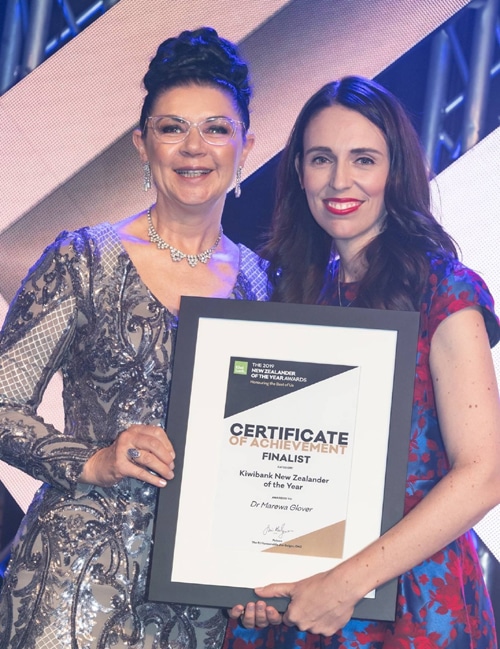
What would be a campaign you would love to start if there were no obstacles?
“Raise The Bar Academia”. Academia needs to remember its purpose and raise professional and ethical standards across research and teaching. Set a goal to lift science to a rigorous standard – starting in medical schools and the health sciences.
Important panel @thegtnf to discuss the widespread ignorance of what nicotine is, what effect it has on people & the prolific disinformation campaign spreading lies about it. @CarolynBeaumont Delon Human @SmokeFreeSweden David Sweanor, Hiroya Kumamaru, Mohamadi Sarker pic.twitter.com/WlD4yeNUg0
— Prof Marewa Glover (@MarewaGlover) September 20, 2023
Who (or W.H.O. hahaha ) is the biggest enemy when it comes to tobacco harm reduction?
The World Health Organisation decision-making politicians, regulators, and government officials, and the philanthropists funding the World Health Organisation are being fed a diet of disinformation.
There are many seminal texts about why this is happening. Two I found enlightening were:
- Manufacturing Consent: The Political Economy of the Mass Media – a 1988 book by Edward S. Herman and Noam Chomsky.
- Powershift: Knowledge, Wealth and Violence at the Edge of the 21st Century – a 1990 book by Alvin Toffler.
Is there a message you would like to give our readers?
Stopping violence, lies and fraud starts with each one of us. Strive to live by values incompatible with these harmful behaviours. Value honesty, humility, and respect. Act with compassion. Be a truth-seeker. But also, you must protect yourself, your family, and your organisations. Hone your bullshit-detector. Do what you can to make the world a safer place for the most vulnerable – children, girls, and women.
Nicotine in
albeit gone Apr’25. What will happen? Mahalia says “there’ll be more crime. There’ll be positive impacts on people and then of course there’s negatives and the negative will always outweigh the good that it’s doing.” Insight from real people https://t.co/GvbxDJFaca pic.twitter.com/Y1gdlZN8uz
— Prof Marewa Glover (@MarewaGlover) August 4, 2023
Finally, if you could give an “Ecigclick Award” to any person, product, or company in the vaping industry / advocacy circle – who / what would it be?
There are so many THR inventors, scientists, advocates, manufacturers, retailers, and consumers that deserve awards. I would like there to be a Champion Wall where all of them could be honoured for their part in saving the many lives that have been saved already.
Thank you Ecigclick for this opportunity to share a bit about my career.
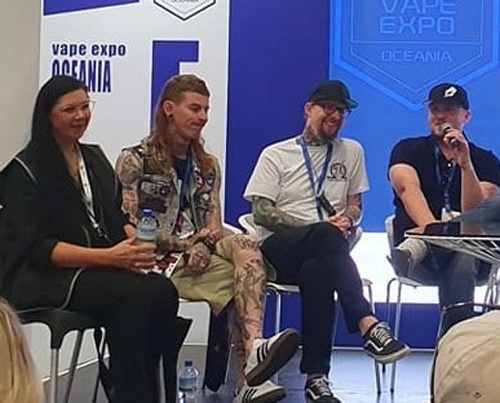
Thank You
Well thank you to Dr Marewa for taking the time to chat to us and help us to understand the issues faced by indigenous people.
I think we all agree how hard she works to get the voices of the oppressed heard. Thank you for all you do!
If you would like to follow Dr Marewa Glover you can find her:
Twitter / X : MarewaGlover
Centre of Research Excellence Indigenous Sovereignty & Smoking: coreiss.com
Voices of the 5%: voicesofthe5percent.nz.
The post Dr Marewa Glover Chats To Ecigclick! appeared first on Ecigclick.






